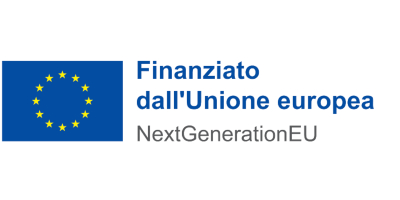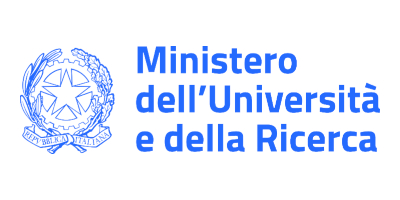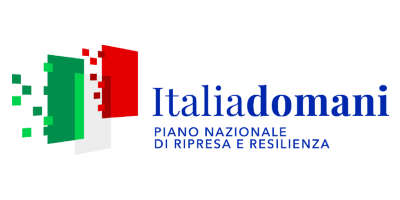PRIN programme projects
Venice School of Management
The Research Projects of Significant National Interest (PRIN [ITA]) programme, administered by the italian Ministry of Universities and Research (MIUR), is designed to fund public research projects in order to promote the national research system, strengthen interactions between universities and research institutions in line with the objectives outlined in the National Recovery and Resilience Plan (NRRP), and encourage Italian participation in initiatives related to the European Union's Framework Program for Research and Innovation.
PRIN-PNRR 2022
HBEEVOLA
Honey BEE VOLatility: an environmental index for assessing climatic risk impact on ecosystems service provision
Coordinator: Marco Li Calzi
VSM role: Associated Investigator
Duration: 30/11/2023 - 29/11/2025 (24 months)
Research team: Marco Li Calzi, Gabriella Buffa, Luca Di Corato (DEC), Edy Fantinato, Alberto Fiorese
Budget: € 253.838,00 - VSM amount: € 118.809,00
Funding programme: PRIN: Progetti di ricerca di rilevante interesse nazionale – Bando 2022 PNRR, finanziato dall’Unione Europea European Union Next-GenerationEU - National Recovery and Resilience Plan (NRRP) – MISSION 4 COMPONENT 2, INVESTIMENT 1.1
Contract no.: P2022AX5TH - CUP: H53D23009460001

This project concerns the assessment and forecasting of the climate volatility impact on ecosystem service provision in Italy, by exploiting the co-movements between honeybees’ health and climate change. The assessment of environmental risk is crucial for monitoring ecosystem’s health and for ensuring the viability of human settlements and economic activities. We aim to integrate this assessment using honeybees as environmental bio-monitors.
Labour in transition
Job-skills development and firm innovation competencies
Coordinator: Francesco Zirpoli
VSM role: Associated Investigator
Duration: 16/10/2023 - 15/10/2025 (24 months)
Research team: Francesco Zirpoli, Bruno Perez Almansi
Budget: € 233.762,00 - VSM amount: € 60.201,00
Funding programme: European Union Next-GenerationEU - National Recovery and Resilience Plan (NRRP) – MISSION 4 COMPONENT 2, INVESTIMENT 1.1 'Fondo per il Programma Nazionale di Ricerca e Progetti di Rilevante Interesse Nazionale (PRIN) – Bando 2022'
Contract no.: 2022E4C3YK - CUP: H53D23005790006

The increasing use of technology in the production process has led to transforming professional profiles and training needs, as new skills are required to perform changing tasks. As a result, the use of new technologies in the workplace, such as digital ones, is affecting both business organization and professional training. These changes are particularly visible in the transport industry, and especially in automotive firms. In this regard, the Italian NRRP provides significant financial resources to support the transport transition towards sustainable mobility and to reorganize upskilling and reskilling policies (Mission M2C2, M3, M5C1). The project aims to investigate the impact of the ongoing technological transition on employment and professional skills in the automotive sector. It is based on the combination of different disciplinary expertise (sociology of work and organisations, economic sociology, innovation management) and methodological approaches (qualitative surveys and data sets). The project will focus on 5 case studies consisting of companies of the automotive sector with plants in Italy and in Poland. The companies will be identified based on literature review of the Italian automotive industry, on our previous research and on the analysis of the data set of the National Observatory on the Transformation of the Italia Automotive Ecosystem (O-TEA [ITA]) at Ca' Foscari University of Venice.
Fostering sustainability mindset
How non-financial disclosure and corporate risk assessment may drive ESG value creation
Coordinator: Chiara Mio
VSM role: Principal Investigator
Duration: 28/09/2023 - 27/09/2025 (24 months)
Research team: Chiara Mio, Marisa Agostini, Daria Arkhipova, Antonio Costantini, Marco Fasan, Silvia Panfilo, Nicolas Canestraro
Budget: € 269.751,00 - VSM amount: € 81.287,00
Funding programme: European Union Next-GenerationEU - National Recovery and Resilience Plan (NRRP) – MISSION 4 COMPONENT 2, INVESTIMENT 1.1 'Fondo per il Programma Nazionale di Ricerca e Progetti di Rilevante Interesse Nazionale (PRIN) – Bando 2022'
Contract no.: 2022CTBNRN - CUP: H53D23002380006

The proposed project aims to enhance companies' ability in the European Union (EU) to improve their performance in the environmental, social and governance (ESG) dimensions and mitigate the associated risks. In particular, it aims to develop models and instruments for increasing corporate accountability. The project's theoretical and practical relevance can be related to two initiatives undertaken at the EU level. The first is the Next Generation EU (NGEU) recovery fund, initiated in 2020 to mitigate the COVID-19 pandemic impact, which authorizes the European Commission to borrow funds on the capital markets to address economic and social damages. Second, on April 2021, the European Commission released a proposal for a Corporate Sustainability Reporting Directive (CSRD) that amends and extends the sustainability reporting requirements introduced by the EU Directive 2014/95/EU (EUD). In the light of these initiatives, there is a need for scholars and practitioners to develop a better understanding of the mechanisms effectively implementable at the EU level to induce responsible corporate behaviour and stimulate long-term value creation.
Fostering sustainability mindset project news
Managing sustainability tensions for change
Coordinator: Francesco Rullani
VSM role: Associated Investigator
Duration: 28/09/2023 - 27/09/2025 (24 months)
Budget: € 264.054,00 - VSM amount: € 66.200,00
Funding programme: European Union Next-GenerationEU - National Recovery and Resilience Plan (NRRP) – MISSION 4 COMPONENT 2, INVESTIMENT 1.1 'Fondo per il Programma Nazionale di Ricerca e Progetti di Rilevante Interesse Nazionale (PRIN) – Bando 2022'
Contract no.: 20222X8L5C - CUP: H53D23002120006
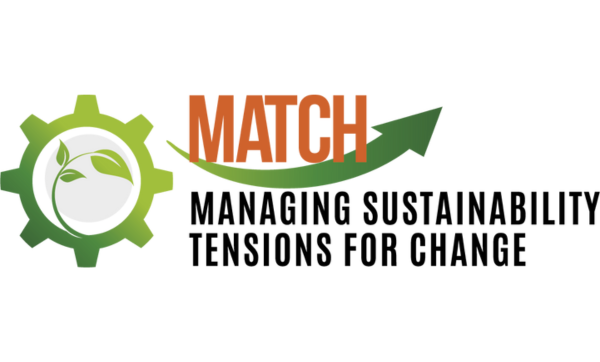
Despite the mounting pressure for organizations to reduce their negative social and environmental (S&E) footprint, results are still disappointing. Important changes in the processes and products are needed to effectively reach S&E results, together with economic sustainability. However, as profit-seeking and S&E aspects involve desirable yet conflicting objectives, multiple tensions emerge when aiming to address both. Confronted with such tensions, some firms change and find successful ways to integrate S&E concerns in their activities, while others still perpetuate wrongdoing, giving priority to the profit-seeking goals. We aim to investigate “What factors make organizations effectively address the tensions between profit-seeking and S&E goals?
And what factors prevent them to do so?”. In particular, we aim at understanding the role of:
- organizations' willingness – the salience of the tension experienced, also given the external and internal pressure the organization is subject to;
- organizations' ability: the resources and capabilities it can leverage on to implement a change, including both the internal ones (i.e. the existing technological trajectories) and the external ones (the network of partners the organization engages with).
Blending the physical and the virtual workplace
How different hybrid work’s models disrupt the labormarket and call for emergent configurations of organizational and human resource management practices
Coordinator: Sara Bonesso
VSM role: Principal Investigator
Duration: 28/09/2023 - 27/09/2025 (24 months)
Research team: Sara Bonesso, Anna Comacchio, Laura Cortellazzo, Fabrizio Gerli, Giovanna Afeltra
Budget: € 185.712,00 - VSM amount: € 66.856,00
Funding programme: European Union Next-GenerationEU - National Recovery and Resilience Plan (NRRP) – MISSION 4 COMPONENT 2, INVESTIMENT 1.1 'Fondo per il Programma Nazionale di Ricerca e Progetti di Rilevante Interesse Nazionale (PRIN) – Bando 2022'
Contract no.: 20224BJLC7 - CUP: H53D23002160006

In March 2020, a massive experiment of remote working started abruptly almost worldwide. Italy was among the first and most hit countries, such that in 2020 around 8,000,000 employees started working from home, while the average number of remote workers before the lockdown in Italy was approximately500,000. The growth of remote working due to COVID-19 has accelerated some trends already on the way, like connectivity and virtualization of teamwork affecting the supervision style required in distributed organizations. As highlighted by recent labor market surveys, experts have estimated a long-term growth of this trend, and an increasing number of employees working in hybrid arrangements. If the future of work is depicted as hybrid - that is, employees who do some tasks in the office and others virtually – it becomes paramount to understand the implications that these changes will generate for the organizations and the labor market. In this scenario, the present project aims to conduct an exploratory study on this emergent and still under investigated phenomenon.
Communicable diseases and economic activity
Individual behaviour, social interactions and macroeconomic outcomes
Coordinator: Marco Tolotti
VSM role: Associated Investigator
Duration: 28/09/2023 - 27/09/2025 (24 months)
Research team: Marco Tolotti, Paolo Pellizzari, Jorge Yepez
Budget: € 259.594,00 - VSM amount: € 70.718,00
Funding programme: European Union Next-GenerationEU - National Recovery and Resilience Plan (NRRP) – MISSION 4 COMPONENT 2, INVESTIMENT 1.1 'Fondo per il Programma Nazionale di Ricerca e Progetti di Rilevante Interesse Nazionale (PRIN) – Bando 2022'
Contract no.: 20227339KC - CUP: H53D23002220006
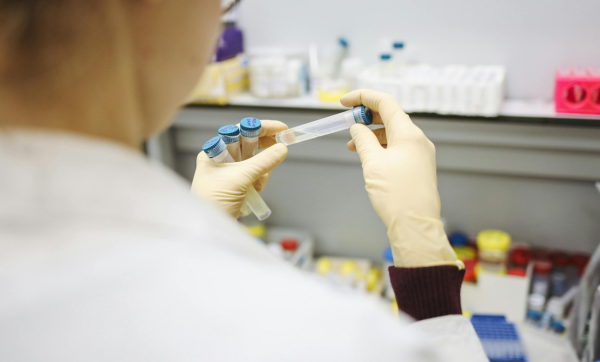
The ongoing COVID-19 pandemic has revealed to the entire world that infectious diseases are not only a threat to the economic development of poor countries, but they can generate dramatic health and socio-economic consequences even in developed economies. This has spurred a growing interest among domestic and international policymakers in understanding the nature of the epidemiology-economy relationship and the effects of alternative policies on both epidemiological and economic outcomes to design effective control measures aiming to reduce the burden and health costs of infection without compromising social and economic conditions. This project aims at disentangling the numerous channels through which different forms of public policy can be used to reduce the harmful implications of communicable diseases by targeting different objectives, from the single individual up to the society. For doing this, we consider a range of critical infectious diseases (e.g., emerging infections with pandemic potential and traditional infections, including vaccine preventable and sexually transmitted diseases) in order to identify the most effective policy in specific circumstances, accounting for the health and economic peculiarities of different infections, in terms of their transmission characteristics and impact, distinguishing between short- and long-term effects and their consequences on different groups within the population.
Organizing for resilience
How do networks and firms face adversities?
Coordinator: Anna Cabigiosu
VSM role: Associated Investigator
Duration: 28/09/2023 - 7/09/2025 (24 months)
Research team: Anna Cabigiosu, Maddalena Cipriani
Budget: € 336.195,00 - VSM role: € 76.483,00
Funding programme: European Union Next-GenerationEU - National Recovery and Resilience Plan (NRRP) – MISSION 4 COMPONENT 2, INVESTIMENT 1.1 'Fondo per il Programma Nazionale di Ricerca e Progetti di Rilevante Interesse Nazionale (PRIN) – Bando 2022'
Contract no.: 2022RPXNJB - CUP: H53D23003380006

Companies are becoming more and more exposed to shocks, adversities and unexpected events. This goes hand in hand with the increasing attention that resilience is gaining in business and management research. Notwithstanding prior literature acknowledges that organizations are embedded in institutional and competitive contexts, past research has mostly focused on resilience at individual and organizational level (Hilmann & Guenther, 2021), overlooking “how inter-organizational structures should be designed for resilience” (Linnenluecke 2017: 25). As a consequence we know little about networks’ characteristics and mechanisms for facing crises and adversities, also because network studies have not yet explored the role of resilience as a possible performance outcome of inter-organizational relationships (Moretti 2017). Addressing these limitations, our research will focus on the following research questions: 1) How can we define and measure the resilience of a network?; 2) Which are the structural characteristics and the managerial processes supporting the ability of a network to anticipate, cope and react to adversities?; 3) How does the resilience of a network influence the organizational resilience and vice-versa?
Data Driven Innovation
Measuring its Effects on Industries, Firms, and Business Models
Coordinator: Massimiliano Nuccio
VSM role: Associated Investigator
Duration: 28/09/2023 - 27/09/2025 (24 months)
Research team: Massimiliano Nuccio, Lisa Crosato, Cecilia Mereghetti
Budget: € 298.670,00 - VSM amount: € 74.418,00
Funding programme: European Union Next-GenerationEU - National Recovery and Resilience Plan (NRRP) – MISSION 4 COMPONENT 2, INVESTIMENT 1.1 'Fondo per il Programma Nazionale di Ricerca e Progetti di Rilevante Interesse Nazionale (PRIN) – Bando 2022'
Contract no.: 2022JHZL37 - CUP: H53D23002450006

The distinctive feature of the current wave of technical change is that innovations of various kind – improvement of existing as well as development of new products, processes, organizational methods, and business models – are experiencing an unprecedented acceleration thanks to the availability and exploitation of an ever-larger amount of data generated from a myriad of digitally recorded transactions, production, and communication processes. This phenomenon, commonly labelled as “Data-Driven Innovation” (DDI) poses a tremendous opportunity for economic growth and wealth creation. Yet, the effects of this process for the evolution of firms and industries are poorly understood. Whether we look at its unfolding across sectors or within sectors in terms of firm growth, new firms’ creation, survival, and changes in organizations and business models, we observe that, so far, the advantages have been unevenly distributed. Why? How can we explain differences between sectors, across firms within sectors, and within firms? The chief aim of this project is to examine the fundamental relations between the characteristics of the current wave of DDI and its effects on the structure and dynamics of industries, with a particular attention to the effects on business and different typologies of organizations engaged with major societal challenges.
The Language of Innovation
Coordinator: Giulia Cancellieri
VSM role: Associated Investigator
Duration: 28/09/2023 - 27/09/2025 (24 months)
Research team: Giulia Cancellieri, Giorgia Bortoloso
Budget: € 271.228,00 - VSM amount: € 35.108,00
Funding programme: European Union Next-GenerationEU - National Recovery and Resilience Plan (NRRP) – MISSION 4 COMPONENT 2, INVESTIMENT 1.1 'Fondo per il Programma Nazionale di Ricerca e Progetti di Rilevante Interesse Nazionale (PRIN) – Bando 2022'
Contract no.: 2022MCWT4Y - CUP: H53D23002520001

Innovators’ struggle to rally key audiences’ support around their novel ideas, products, or projects is a central theme in the innovation and entrepreneurship literature. This struggle is intrinsic to the paradoxical nature of novelty. On the one hand, creating something genuinely new requires breaking out of existing categories, often by recombining them in atypical ways. But the outcomes of atypical recombination are less likely to be meaningfully and positively recognized by relevant audiences. Many studies demonstrate that such novel combinations hold the potential for great impact, yet they also consistently find that categorical mixing commonly receives reproach rather than support. Indeed, “most of the time” novel ideas are discarded “even under the most favorable circumstances” (Augier et al., 2015, p.1141). The challenge faced by innovators seeking to rally support for their ideas is especially acute in those situations where evaluative responses occur in the absence of any tangible product and/or before reputational information becomes available to relevant audiences.
Nudging under Limited Attention
Cooridnator: Marco Li Calzi
VSM role: Associated Investigator
Duration: 28/09/2023 - 27/09/2025 (24 months)
Budget: € 229.638,00 - VSM amount: € 102.874,00
Funding programme: European Union Next-GenerationEU - National Recovery and Resilience Plan (NRRP) – MISSION 4 COMPONENT 2, INVESTIMENT 1.1 'Fondo per il Programma Nazionale di Ricerca e Progetti di Rilevante Interesse Nazionale (PRIN) – Bando 2022'
Contract no.: 20222Z3CR7 - CUP: H53D23002130006

A nudge attempts to improve individual choice by changing the framing of a decision problem. We aim to develop a methodology for the evaluation of nudges, geared to agents who make rational choices constrained by limited attention. Our approach combines the classical theory of revealed preferences with recent advances in stochastic choice, testing and demonstrating its application across multiple domains.
Reframing Globalization in European Peripheries
Intellectual and Expert Networks Facing Political and Economic Transformations (1975-2022)
Coordinator: Valentina Fava
VSM role: Associated Investigator
Duration: 28/09/2023 - 27/09/2025 (24 months)
Research team: Valentina Fava, Ioan Achim Balaban
Budget: € 204.348,00 - VSM amount: € 40.400,00
Funding programme: European Union Next-GenerationEU - National Recovery and Resilience Plan (NRRP) – MISSION 4 COMPONENT 2, INVESTIMENT 1.1 'Fondo per il Programma Nazionale di Ricerca e Progetti di Rilevante Interesse Nazionale (PRIN) – Bando 2022'
Contract no.: 2022RYN7BX - CUP: H53D23000300001

The project intends to reframe, from a European perspective, the understanding of the entangled dynamics of globalization and democratization and of their flaws and backlashes. Starting from the mid-1970s, the research will reconsider the political, social, economic, and intellectual continuities between the late and post-Cold war period well beyond the 1989/1993transitions. A specific focus on East Central and Southeastern European peripheries which will shed new light on regional approaches and responses to the challenges of globalization. In the light of the COVID pandemic and the Russian attack on Ukraine and their global backlash, it seems high time to put under historical scrutiny the entire period starting with the summit of Rambouillet and the conference of Helsinki (1975) as symbolic moments of an international settlement allegedly based on global trade and human rights.
What went wrong?
A retrospective analysis of destination policies in overtouristed hotspots
Coordinator: Giovanni Favero
VSM role: Principal Investigator
Duration: 28/09/2023 - 27/09/2025 (24 months)
Research team: Giovanni Favero, Arianna Candeago
Budget: € 240.821,00 - VSM amount: € 84.301,00
Funding programme: European Union Next-GenerationEU - National Recovery and Resilience Plan (NRRP) – MISSION 4 COMPONENT 2, INVESTIMENT 1.1 'Fondo per il Programma Nazionale di Ricerca e Progetti di Rilevante Interesse Nazionale (PRIN) – Bando 2022'
Contract no.: 2022B7RP3P - CUP: H53D23000150006

In the last decade, "overtourism", identified as an unbearable massification of tourism concentrated on some "hotspots", has emerged as urgent in the debate on tourist policies. Earliest studies suggested that this idea resulted from the perception of the inhabitants rather than from empirical analyses. However, more refined quantitative indicators and statistical arguments have grown later in support of an overflow of tourists in some specific destinations. What made this evolution of tourism, and its side effects, happen in some places rather than in others? Previous research has questioned the role of destination policies aimed at capturing the interest of the global tourist industry, but a detailed analysis is still missing on which specific strategies created the conditions for overtourism in some destinations and for abandonment in others. A retrospective study of political and technical discussions on tourism is essential to understand which interpretive frames underpinned the choice of specific measures and actions. This project identifies three different case studies to be compared as representative of extreme conditions of tourism, in the context of the evolution of the national tourist policies (Venice, Cinque Terre and Park of Foreste Casentinesi).
CATAI
CArbon Transition in the Automotive Industry
Coordinator: Pietro Lanzini
VSM role: Associated Investigator
Duration: 28/09/2023 - 27/09/2025 (24 months)
Research team: Pietro Lanzini, Andrea Stocchetti
Budget: € 219.642,00 - VSM amount: € 79.252,00
Funding programme: European Union Next-GenerationEU - National Recovery and Resilience Plan (NRRP) – MISSION 4 COMPONENT 2, INVESTIMENT 1.1 'Fondo per il Programma Nazionale di Ricerca e Progetti di Rilevante Interesse Nazionale (PRIN) – Bando 2022'
Contract no.: 2022JHZL37 - CUP: H53D23002450006

Our study intends to address the issue of low-carbon transition in the automotive sector through a joint analysis of carmakers' perceptions of risks and opportunities and related strategies, together with consumers' perceptions and stakeholders' expectations of new technologies and mobility services. The project has its roots in the awareness that current mobility patterns are not sustainable, and in the subsequent agenda that many countries and supranational entities are adopting to shift to more sustainable paradigms. The EU is at the forefront of this challenge, with ambitious plans to phase out internal combustion engines over the next decades and trigger a de-carbonization of the whole transport sector. Such revolutionary approach is a complex process envisaging the interplay of different strategies (availability of cleaner vehicles, sharing mobility and a new concept itself of mobility based on use rather than possession, mobility as a service, etc.) and different actors, so that preliminary conditions for the implementation of sound policies are represented both by adequate understandings of the “points of view” of such key actors, and by a clear picture on how the different perspectives interact and synergically pave the way to those policies and strategies that hold the potential of being more effective.
Communicating companies’ supply chain sustainability practices in a digital environment
Coordinator: Andreas Hinterhuber
VSM role: Associated Investigator
Duration: 28/09/2023 - 27/09/2025 (24 months)
Research team: Andreas Hinterhuber, Paola Signori, Tiziano Vescovi
Budget: € 297.739,00 - VSM amount: € 48.966,00
Funding programme: European Union Next-GenerationEU - National Recovery and Resilience Plan (NRRP) – MISSION 4 COMPONENT 2, INVESTIMENT 1.1 'Fondo per il Programma Nazionale di Ricerca e Progetti di Rilevante Interesse Nazionale (PRIN) – Bando 2022'
Contract no.: 2022LHHLWM - CUP: H53D23002480006

Nowadays, two forces significantly affect companies: sustainability and digitalization. Consumers, and stakeholders in general, are becoming increasingly concerned with sustainable business practices, penalizing companies perceived as not in line with sustainability requirements. In the face of a global trust crisis, consumers expect companies to behave with moral and business integrity, rewarding those firms acting to make the world a better place. At the same time, digitalization profoundly affects businesses’ processes, opening up unprecedented opportunities, while also posing a threat to companies failing to follow the digitalization route. While practitioners and scholars have studied the impact of these forces on businesses, they have scarcely examined the combination of the two, including how companies can communicate their virtuous sustainability practices via digital channels and, in turn, how consumers perceive the companies’ effort in aligning to sustainability goals. Our research project thus builds on the current literature on sustainability and digitalization. Specifically, communicating companies’ supply chain sustainability in a digital environment has the potential to be a lasting source of competitive advantage for companies that develop the skills, relationships and reputational assets to do so.
PRIN 2015
SPORT
Smart PORt Terminals
Coordinator: nazionale - Walter Ukovich (Univ. Trieste), local - Raffaele Pesenti
Duration: 05/02/2017 - 05/02/2020 (3 years)
Budget: € 29.428 (local); € 146.000 (national) - VSM amount: € 8.571
Research team: Giovanni Vaia, Giovanni Fasano, Dario Bauso (Università di Sheffield e Palermo), Giacomo di Tollo
Project no.: 2015XAPRKF_007 - Call ID: 2015
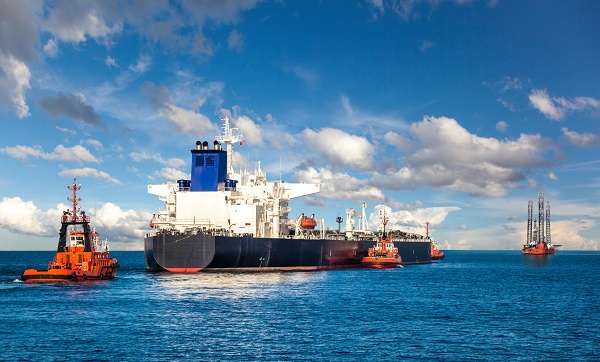
The objective of the project is to define innovative methodologies in order to implement a software platform capable of providing support to port logistics operators in the management of intermodal activities.
In order to achieve this, the SPORT approach envisages that the platform is organised on two levels: a basic level that manages the integrated transversal functions such as communication and user interfaces, databases and tools for modelling, optimisation and simulation, and an application level, with a series of integrated modules, each of which relates to a specific problem relevant to the management of the activities of interest.
Public finance and taxation for the preservation and promotion of the historical and artistic cultural heritage
Coordinators and research team: Del Federico Lorenzo (Chieti-Pescara), Cordeiro Guerra Roberto (Firenze), Tosi Loris (Ca' Foscari Venezia), Basilavecchia Massimo (Teramo)
Duration: 3 years
Project no.: 2015ZFWYX2

Despite the fact that the Constitutional Charter mandates the protection and promotion of the landscape and historical-artistic heritage, the insufficiency of public funds not only for the valorisation but also for the simple safeguarding of these collective assets is sadly chronic.
The research will result in concrete proposals for action to outline a systematic and efficient framework of fiscal and public finance measures aimed at guaranteeing sufficient resources not only for the preservation but also for the promotion of cultural heritage, within the framework of European actions and constraints, as well as the different levels of intervention (state, regional and local). Furthermore, an empirical investigation will be developed on the one hand to verify the implementation in cities of art of measures to support cultural heritage and on the other hand to identify the factors that would encourage private investment in the sector.
Last update: 09/04/2025

